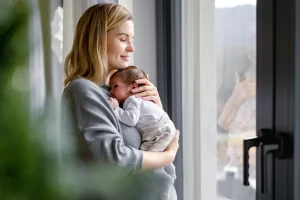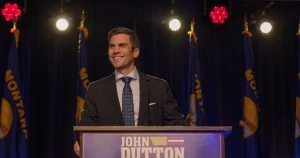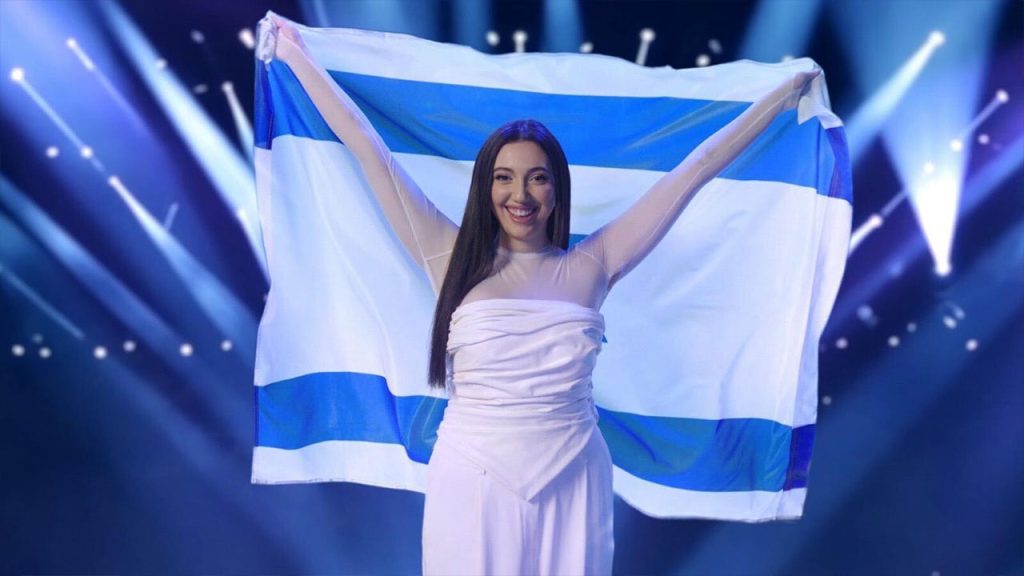From the ashes of unimaginable tragedy, a young woman has risen, not as a symbol of vengeance, but as a testament to the enduring power of the human spirit and the healing balm of music. Yuval Raphael, a 24-year-old survivor of the horrific Hamas terrorist attack on the Nova music festival in October 2023, has transformed her trauma into a source of strength, channeling her experience into a musical journey that has culminated in her selection to represent Israel at the Eurovision Song Contest in Basel, Switzerland. Raphael’s story is not merely one of survival, but of resilience, a powerful narrative of how an individual can find solace and purpose in the face of unspeakable horror.
Raphael’s journey to the Eurovision stage began in the chilling aftermath of the October 7th attack. Forced to flee the festival grounds with a group of friends, she sought refuge in a roadside bomb shelter near Kibbutz Re’im. What followed was an eight-hour ordeal of unimaginable terror. Hamas terrorists repeatedly targeted the shelter, firing upon those huddled inside and eventually resorting to grenades. Raphael, trapped beneath the bodies of the deceased, endured a living nightmare, the sounds of gunfire and explosions echoing around her, the weight of loss pressing down upon her. This harrowing experience, shared by dozens of others, including American-Israeli Hersh Goldberg-Polin, became a defining moment in Raphael’s life, a catalyst for her transformative journey.
Emerging from the shelter, Raphael confronted the devastating reality of the massacre. The joyful atmosphere of the music festival had been shattered, replaced by the grim landscape of death and destruction. Four of her friends were among the victims. The trauma ran deep, leaving scars that would forever mark her life. Yet, amidst the pain and grief, a spark of resilience ignited within her. She turned to music, not as a form of escape, but as a means of processing her trauma, of finding a voice amidst the silence of her suffering. Music became her therapy, a pathway to healing and self-discovery.
Remarkably, with no prior experience as a singer, Raphael auditioned for the “Rising Star” competition, a televised event that serves as Israel’s selection process for the Eurovision Song Contest. Her performance resonated with both judges and audiences, captivating the nation with her raw emotion and powerful voice. She sang “The Writings on the Wall,” a song imbued with the pain and resilience of her experience, followed by a poignant rendition of ABBA’s “Dancing Queen,” dedicated to the victims of the attack, the “angels” lost on that tragic day. Her victory was not just a personal triumph, but a symbol of hope for a nation grappling with the aftermath of terror.
Raphael’s journey to the Eurovision stage has also been marked by controversy. Her appearance before the United Nations Human Rights Council, where she shared her harrowing experience, was met with mixed reactions. While some praised her courage and determination to shed light on the suffering of innocent civilians, others criticized her testimony, viewing it as a political maneuver. Raphael, however, maintained that her motivation was solely to amplify the voices of the victims and ensure that their stories were heard. She acknowledged the potential for backlash, particularly at Eurovision, an event that has often been a platform for political expression, but remained resolute in her decision to share her truth.
The selection of an Israeli contestant for Eurovision has, in recent years, become increasingly fraught with political tension. Following the October 2023 attacks and the subsequent IDF operations in Gaza, there were calls to ban Israel from the competition. The European Broadcasting Union, however, reaffirmed Eurovision’s commitment to being a non-political event, rejecting the calls for a ban. Raphael’s predecessor, Eden Golan, also faced significant challenges, including anti-Israeli protests and security concerns that necessitated a Shin Bet detail. Even the title of Golan’s song, “October Rain,” was deemed too political and changed to “Hurricane.” Raphael is likely to face similar challenges, but her determination to share her story through music remains unwavering. Her participation in Eurovision is not merely a musical performance, but a powerful statement of resilience, a testament to the human capacity to find strength and hope even in the darkest of times.















